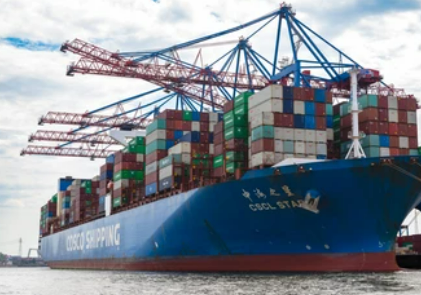
Aria Thomas
Oct 11, 2022 11:21

Increases in sea freight rates have enabled COSCO SHIPPING Holdings Co Ltd (SS:601919), the publicly traded company of the eponymous shipping behemoth, to forecast a higher net income for the past nine months.
The company forecasts a net profit attributable to shareholders of approximately 97.21 billion yuan ($13.59 billion) for the nine months ending September 30, 2017, a 43.7% increase over the same period in 2016. The anticipated earnings before interest and taxes amount to 143.59 billion yuan, an increase of over 50 percent from the prior year.
COSCO explained to the Hong Kong Stock Exchange that export freight rates remained high due to the tight supply-and-demand connection in international transportation.
The company's decision to implement cost-cutting measures has been attributed to both a local epidemic of COVID-19 and broader geopolitical tensions stemming from the conflict between Russia and Ukraine.
Despite a slowdown in domestic output and a decline in demand for exports and imports, China's commercial activity has remained relatively constant thus far in 2018. Nonetheless, the steep decline in China's trade balance during the month of August may portend oncoming difficulties for large maritime corporations.
In August, import growth was virtually nonexistent, while export growth in China decreased from 18% to 7.1%. As a result, China's trade surplus shrunk to $79.39 billion in August, significantly below market expectations, as global economic turbulence hampered export demand.
This week, additional information regarding China's international trade in September is expected to become available. This information will also serve as a baseline for the economy, which is still feeling the consequences of this year's COVID lockdowns.
As trade has slowed, shipping expenses have increased. According to data from the Shanghai Shipping Exchange, following a rather strong first half of the year during which COVID-related disruptions pushed up container reservations, Chinese shipping costs have declined considerably in recent months.

Oct 10, 2022 15:23

Oct 11, 2022 11:23